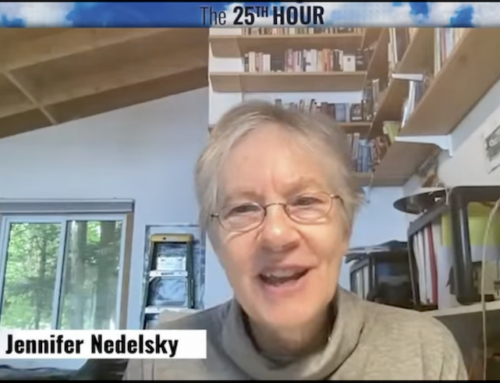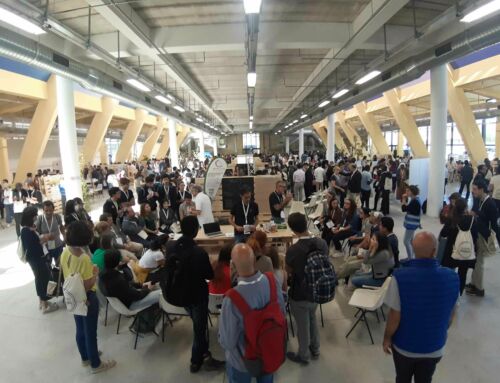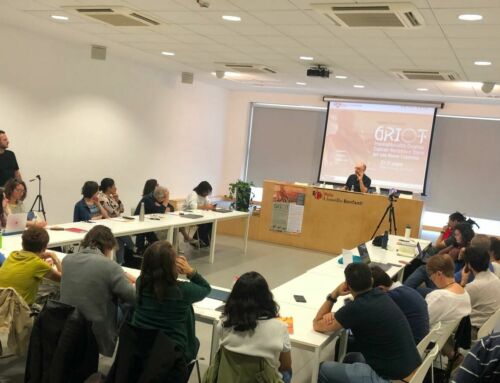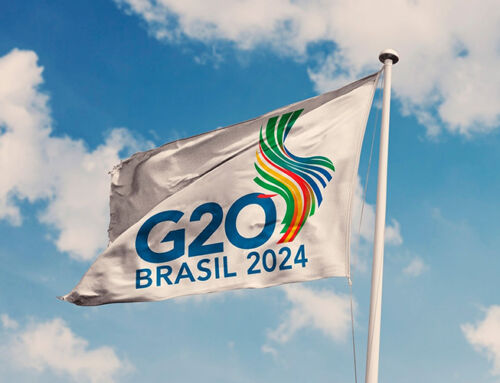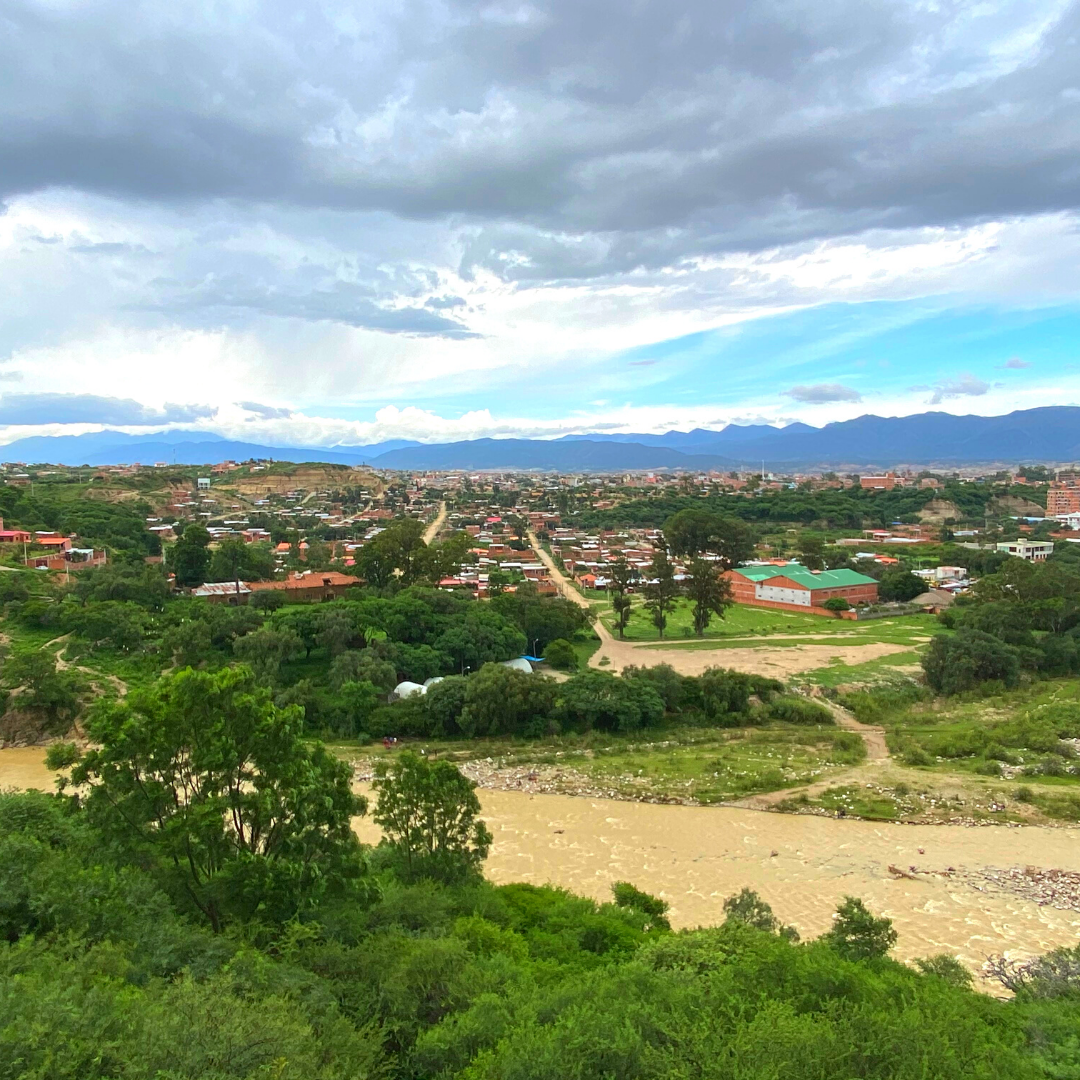
Integral Ecology for the Common Good
by: María Eugenia Martínez
There are not two separate crises, one environmental and the other social, but rather one complex socio-environmental crisis (LS.139). Given the complexity of the matter, an integral approach is required for the solution and attention of the problems as well as for taking care of nature.
The urban problems that many cities in Latin America are currently facing, are due to the accelerated population growth and an excessive and disorderly development model in the city. This situation, in most cases, overexploits natural ecosystems and unfortunately promotes socioeconomic inequality among its inhabitants.
Pope Francis has warned against two characteristics of the deterioration we live in today’s society, one of them referring to individualism and the other to immediatism and excessive consumption. For example, the indiscriminate use of land with informal occupations or agricultural monoculture, both of which are driven by private interests, disrupts the ecosystem services provided by the environment.
If we continue with this pace of development and leave this situation unnoticed, the indicators of vulnerability to climate change will become more accentuated, even in populations that have not adapted, much less mitigated its effects. It is therefore imperative to change course, but how can we modify current lifestyles? It is first of all important to recognize the need for a change in our actions to review our interpersonal relationships and the environment in which we develop them. In order to change, it is necessary to use a key ingredient and a recipe that takes us beyond the result and places us on a transcendent plane. I will explain this ingredient and recipe below.
The ingredient: Intrinsic motivation.
If we think about what moves us to perform certain actions in our daily lives, we can identify and conceptualize what motivation is, the impulse that leads us to make a decision and take action to achieve a certain goal. Two main types of motivation can be identified: intrinsic and extrinsic. Intrinsic motivation comes from within, strengthens your confidence and self-improvement and is coined more in self-love and the search for good. It is associated with high levels of serotonin in the organism that brings a feeling of happiness, serenity, and optimism, in addition to relieving anxiety and improving cognitive processes. Extrinsic motivation, on the other hand, is the motivation that is obtained according to some external reward (generally economic). This is not necessarily bad, but it should not be the only motivation that leads us to act in life, seeking only the benefit that we can obtain from a certain action. While the success or gain of intrinsic motivation is measured by the development of the action itself, extrinsic motivation is measured by the result obtained (a reward). Therefore, with intrinsic motivation, the individual’s experience is further enriched and is more advisable for future actions.
The recipe: an integral ecology comprising multiple dimensions.
It no longer encompasses only a physical sphere but also takes on a human dimension. Laudato Si` indicates the six dimensions that comprise this integral ecology:
A) Environmental ecology, which primarily seeks the relationship between nature and society towards sustainable use, with the sole purpose of combating poverty, caring for nature and regenerating each ecosystem.
B) Economic ecology, which includes environmental protection as part of the development process and not as an isolated fact, in order to establish an integral and integrating humanism to ensure the interaction between ecosystems.
C) Social ecology, which is necessarily institutional, from the family, the local community, the nation to international life. This dimension appeals to the values of solidarity and civility with effective norms and legislation.
D) Cultural ecology, which refers to the natural, historical, artistic and cultural heritage. It calls for attention to local cultures in order to maintain their living, dynamic and participatory meaning.
E) Ecology of daily life, that which adapts to the environment, to the immediate surroundings for a positive and beneficial social life that aims at a dignified life. It is about human and warm relationships that allow to weave bonds of coexistence and belonging, in addition to the care of common places.
F) Human ecology, which includes the quality of life inseparable from the notion of the common good, that is, the relationship of human life with the moral law to respect the nature of man and his recognition of dignity.
If we continue with this pace of development and leave this situation unnoticed, the indicators of vulnerability to climate change will become more accentuated, even in populations that have not adapted, much less mitigated its effects.
All these dimensions combine and create a more dignified sense to the existence of all beings on earth, preparing a welcoming environment for future generations. Since this ingredient and recipe may not be available simultaneously, it would be convenient to evaluate the performance of our actions as a result of two forms of interest: by necessity or by utility.
In the first case, when it is out of necessity, we could indicate that it is a question of meeting a collective demand and that it obeys a local self-management and organization. For example, when a certain group of citizens decides to build their own home in a certain area of the city.
In the case of utility, only the profit maximization of a single agent is sought. For example, when a landowner has land available for indiscriminate real estate sales and it is also located in protected areas. To be able to safeguard the urban commons it is of utmost importance to establish a scale of values in the social actors that is also moral. Hence the importance of assigning a new soul to the economy, seeking that our actions finally acquire that transcendental value.
Certainly, actions do not always work in accordance with the recipe, especially for those who bear the responsibility of ordering procedures, regulations and actions that favour the welfare and common good of citizens, as is the case of local governments, including social leaders and citizens in general. Therefore, it is important to point out that any change needs motivation (intrinsic motivation as a key element) and an educational path to be implemented. This is about more than labelling actions as sustainable (greenwashing), it is essentially about capturing the essence of things so that they can remain in time and beyond their meaning, towards the transcendent.
This path should undoubtedly lead to the safeguarding and care of the common good, which requires a strong capacity for collective action and self-organization in order to sustain its development over time. The urban common provides a space of possibility, in addition to providing a sense of community and encouraging collective action. Thus, the urban commons become the scenario for new actions to safeguard it.
The purpose of this study that I am currently developing in the EoF Academy, aims to break down this thread of research to make visible some effects and externalities in the natural and built environment, thus strengthening the principles, values and spirituality proposed by Pope Francis with the EoF for the care of our common home and therefore our common goods.

MARÍA EUGENIA MARTÍNEZ
Ph.D. student in Architecture and Urbanism at the University of Brasilia
– UnB. Researcher of EoF Academy.
Catholic Urban Planner.
Bolivian.

